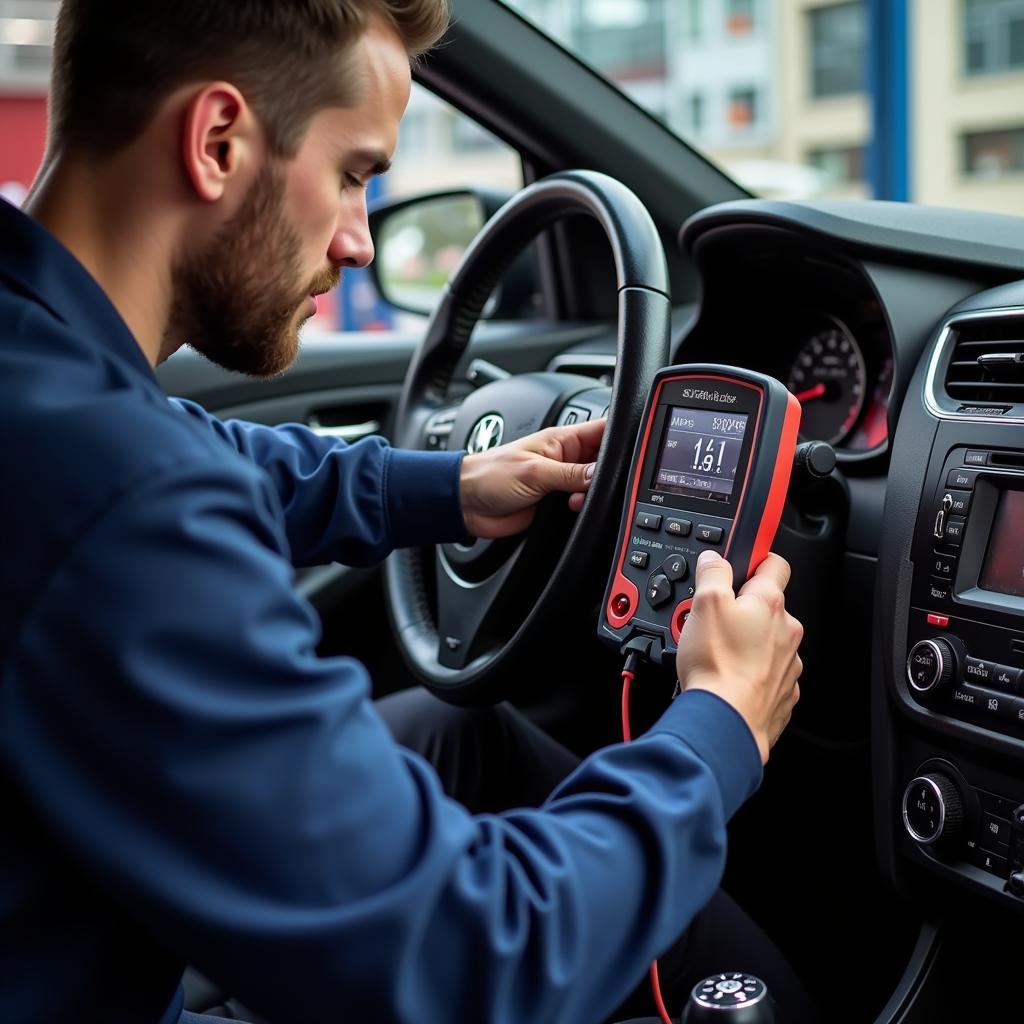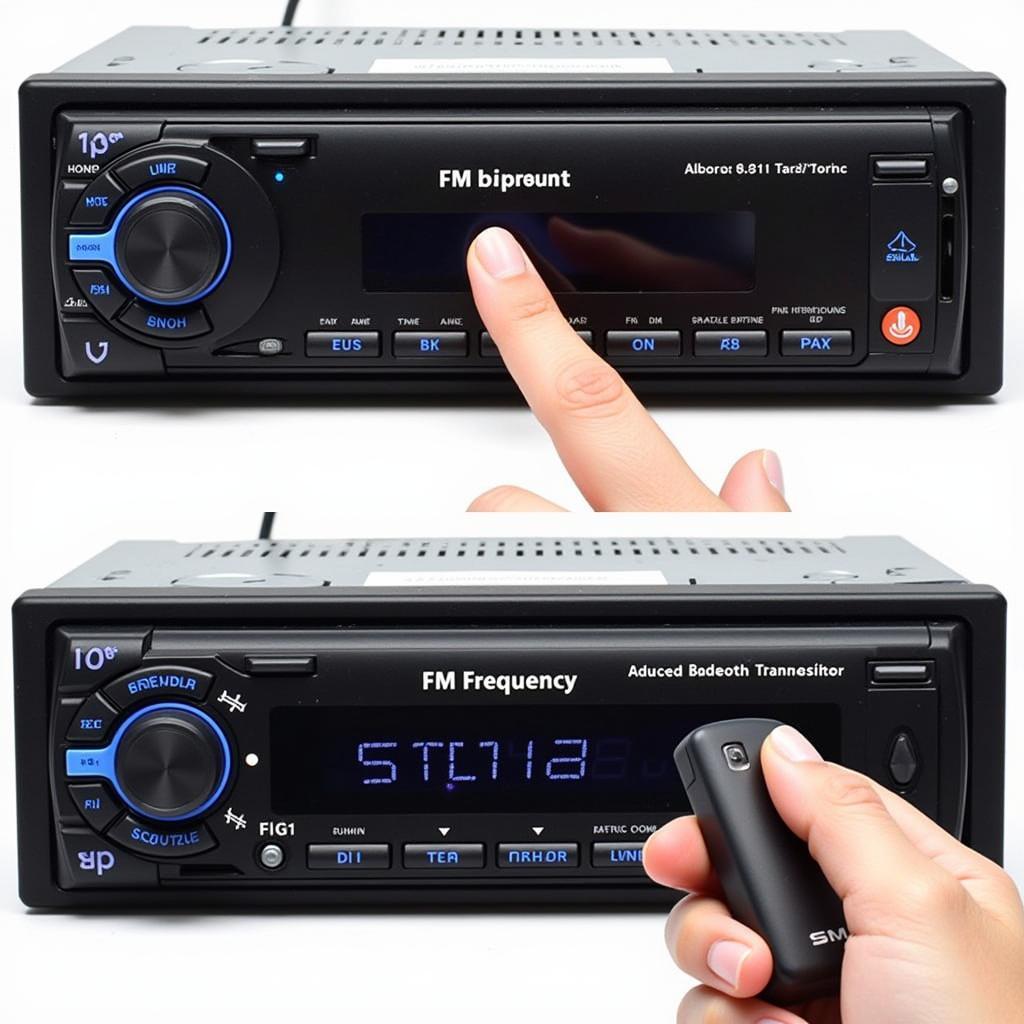Your car’s AC suddenly stopped blowing cold air after a recent battery change? This is a surprisingly common issue and, thankfully, usually an easy fix. This article will guide you through the most likely causes and provide step-by-step solutions to get your AC back up and running.
A dead battery can sometimes disrupt the electronic control unit (ECU) that manages various car systems, including the AC. This disruption can manifest in a few different ways, from blown fuses to reset settings. Don’t worry, it doesn’t always mean a costly trip to the mechanic. Let’s explore the potential culprits.
Checking the Fuses
The first and easiest thing to check is the AC fuse. A power surge during the battery change could have blown it. Locate your car’s fuse box (usually under the dashboard or in the engine compartment). Consult your owner’s manual for the exact location and the specific fuse for the AC system. If the fuse is blown, replace it with a new one of the same amperage.
Why is the AC fuse so important?
The AC fuse protects the AC system from electrical overloads. If it’s blown, no power reaches the AC compressor, resulting in no cold air. It’s a simple component with a big impact.
Relearning the AC System
Sometimes, disconnecting the battery can cause the car’s computer to “forget” the AC settings. This can often be resolved by performing a simple relearn procedure. The exact process varies depending on the car model, but generally involves turning the ignition on, setting the AC to maximum cold, and letting it run for a few minutes. If you’re unsure about the specific procedure for your car, consult your owner’s manual or a qualified mechanic.
changed car battery ac not working
How does the AC system relearn?
The relearn process allows the car’s computer to recalibrate the AC system and restore its optimal functionality. It’s like rebooting your computer after a software glitch.
Low Refrigerant Levels
While less likely to be directly related to a battery change, low refrigerant levels can also cause the AC to stop working. A leak in the system could have coincided with the battery issue. If you suspect a refrigerant leak, it’s best to consult a professional to diagnose and repair it.
Can I check the refrigerant levels myself?
While some DIY kits are available, checking and recharging refrigerant requires specialized equipment and knowledge. Incorrect handling can be dangerous and damage the AC system. how to change battery toyota key fob
Other Potential Issues
In rare cases, the battery change itself might have caused damage to the AC system wiring or components. This is less common, but worth considering if the previous steps haven’t solved the problem.
What if none of these solutions work?
If you’ve exhausted these troubleshooting steps, it’s best to consult a qualified automotive technician. They can diagnose the problem using specialized diagnostic tools and perform the necessary repairs.
 Mechanic diagnosing car AC problem
Mechanic diagnosing car AC problem
“Often, the car AC not working after a battery change is a simple fix related to a blown fuse or reset settings,” says John Smith, ASE Certified Master Technician. “However, it’s crucial to check the basics before assuming a more complex issue.”
“Remember, preventative maintenance is key to avoiding AC problems,” adds Jane Doe, another experienced automotive technician. “Regularly checking your AC system and addressing any minor issues promptly can prevent bigger problems down the road.”
In conclusion, if your car AC is not working after a battery change, don’t panic. Check the AC fuse, try the relearn procedure, and consider the possibility of low refrigerant. If these steps don’t resolve the issue, consult a professional. 2008 honda civic key fob battery Getting your AC back to blowing cold air might be simpler than you think. how to change battery in a mazda key fob
FAQ
-
Why would changing my car battery affect the AC? Disconnecting the battery can sometimes disrupt the car’s electronic control unit (ECU), which manages the AC system.
-
How do I check my car’s AC fuse? Locate your car’s fuse box (usually under the dashboard or in the engine compartment) and consult your owner’s manual for the specific fuse related to the AC.
-
What is an AC system relearn procedure? It’s a process that helps the car’s computer recalibrate the AC system after a battery disconnection.
-
How can I tell if my car has low refrigerant? While some DIY kits are available, it’s best to consult a professional to check refrigerant levels.
-
When should I call a mechanic for car AC issues? If the basic troubleshooting steps don’t resolve the problem, it’s time to consult a qualified technician.
-
How can I prevent car AC problems? Regular maintenance, including checking for leaks and ensuring proper refrigerant levels, can help prevent future AC issues.
-
Can I damage my car’s AC system by trying to fix it myself? Yes, improperly handling refrigerant or other components can lead to further damage. If you’re unsure, consult a professional.


